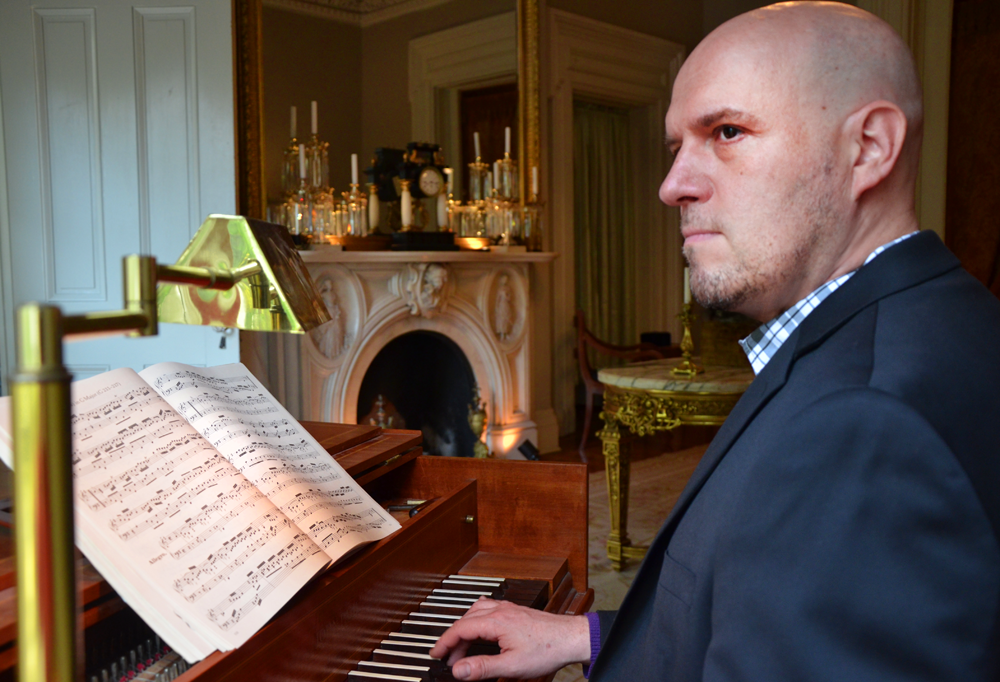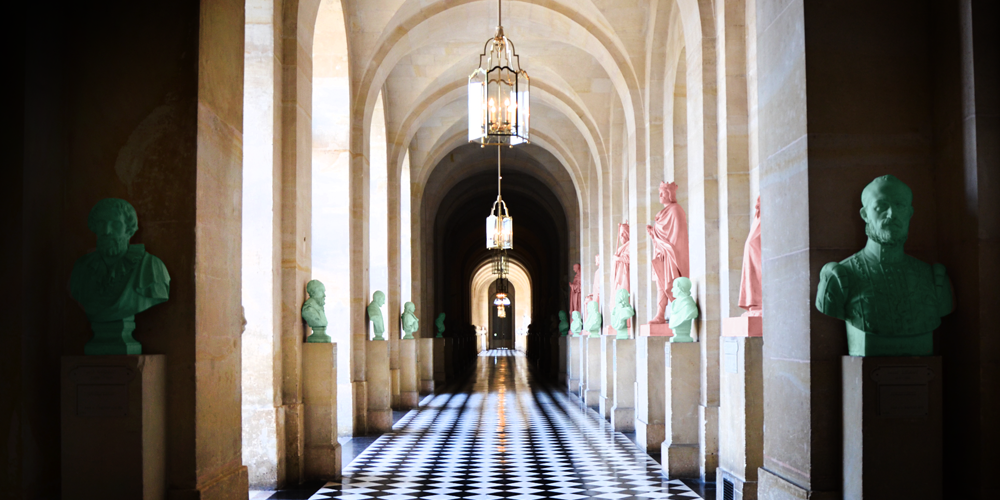
Lately, I’ve been doing a lot of thinking about biographies. Does a listener care where the composer got a post-Doc in ethnomusicology? Will the performance be better because the pianist started playing at 3, Carnegie Hall at 8? Does a long list of academic prizes and appointments assure a great listening experience? Possibly “yes”, but from my experience often “no”.
Ultimately, the way a composer is judged is by the music. Sure, a lengthy printed bio might save the lone concertgoer the awkwardness of appearing alone, much as the smart-phone makes a great companion for solo dining.
In the end, it’s music that matters, nothing else.
So in assembling my list of musical accomplishments, I came to the conclusion that it’s a bit scanty. I could tell you about the prizes I entered and lost, and why I think I lost them – as a good musical friend once told me of my largely tonal compositions, “You need more screech-fart pieces to be taken seriously”. I could tell you that I studied music theory part-time at a prestigious conservatory in Baltimore, while actually majoring in engineering and German at the conservatory’s parent university. I could tell you the details of my role on the board (and as production manager) for an opera company in one of America’s oldest maritime cities, or that I paid my dues stage managing and marking music for a professional orchestra and chorus run by a dictator who should have been deposed 10 years earlier.
But I won’t. What matters most is the music, and perhaps even the story behind the music. So here goes…
Growing up in a rural area, there were no local orchestras, my home had no piano, classical music was never put on the turntable, and my grade school didn’t even have a band. If there was a classical soundtrack to my childhood, it was only the Rossini I heard in Bugs Bunny cartoons or the occasional John Williams film score – the rest I made up in my head. Playtime was always accompanied by an imaginary orchestra in my head, music that to a 6 year old seemed the most beautiful ever imagined. My imaginary compositions sometimes brought my innocent little self to tears. I dreamed of how I could get them out for others to hear, but it seemed like such an impossibility.
My first musical gift was a rudimentary Casio keyboard with plastic buttons where the keys should be. A piano was out of the family budget. I played the thing constantly making up tunes, but no harmony as it wasn’t capable of polyphony. At a relative’s house I would spend hours pretending to play their old upright, always the wrong notes but in the right time. I was also usually told to stop. At 8, I received a rebuilt folk guitar from a musically-inspired uncle, whom I remember, late at night, would sing ballads and bluegrass alone in his upstairs bedroom at my grandparent’s house. I’d sit at the bottom of the stairs and wish I could learn to play and sing like him. Alas the guitar was too big for me to reach around, and my fingers weren’t strong enough to press the steel strings. I put it down.
At church, I hated the service, but loved the music. I pretended to play the organ along with the choir director from behind the wooden pew. During the readings and sermons I’d count the stone blocks on the sanctuary walls while connecting them with imaginary lines into all sorts of beautiful patterns. I think that’s where I learned to compose – on those church walls, bored out of my mind, praying for the next choral interlude to take me away from the prison inflicted by my parents.
To this day I love classical church music – in the hands of Mozart or Bach, it is the closest thing to God I can imagine.
In high school I focused on being a “brilliant” student. Calculus, physics, and German were favorite subjects, while I abhorred English, history, and religion. Notably absent were any kind of music classes. My high school had a band, but I played no band instruments. Like Mozart I had an irrational fear of trumpets, really any brass instrument. Maybe it’s because the kids that used to beat me up in grade school favored such instruments, while I hid the horrible secret that I loved string music. It was in high school that I received an abandoned violin as a gift. No strings, the hair was missing from the bow, and it was in need of a good refinishing. I restored the instrument as best I could (turns out it’s a good instrument from Mittenwald, Germany, close to where my family is originally from). I taught myself to play from Suzuki books discarded by a friend, mostly when no one was at home. My embarrassing passion could not be discovered.
Around the same time, March 21, 1985 to be exact, my favorite teacher, a quirky anti-establishment German teacher, and to this day one of the most brilliant people I’ve ever had the fortune of meeting, gave me a homework assignment that would change my life. In place of our normal grammar homework, he assigned us to listen to a performance of the complete Brandenburg Concerti that were to be played live that night on the local classical station. It was Bach’s 300th birthday after all.
I went home, put a 120-minute tape in the boom box and recorded the performance. I hadn’t heard anything like it before. It was difficult to comprehend, “too many notes”, even sometimes lulled me to boredom. In my head I changed passages to what I thought would sound better. What was I listening to? And what was that strange instrument that could occasionally be heard tinkling in the background. It played every night before bed, until one night, I heard something hidden in the music that wasn’t there before, and then another thing. Phrases were popping out all over. Melodies were upside down. Passages given to the flute were suddenly heard in the cellos. What was going on?
The next day I asked my German teacher about what I was hearing. His eyes lit up at the very question. The next day he brought me something else to listen to, his collection of Glenn Gould playing the Well-tempered Clavier on LP. On the basement stereo, I played the hell out of it. Within days I was asking him about chords and musical structure. At lunch he took me to the band room and showed me a C major triad on the piano. I was mesmerized. C major became F, G, A minor.
Finally I had the tools to start to write down those melodies I had in my head. And so at 16, I became a composer.
This led to that, and that led to this. And by 17, the school band instructor allowed me to orchestrate a sarabande for harpsichord from one of the Bach suites for woodwinds and brass. As a trumpeter himself, he encouraged me to write a piece for trumpet and organ to be included on an album of Baroque-style music he was recording. I ended up working on several high school musicals with him, but never wrote the piece out of fear that it wouldn’t be good enough. For rewards he would bring me scores to study, including the Brandenburg Concerti. The first time I saw the music to these masterpieces, I knew that one day I would have to be a composer.
And so I got my musical education from studying the actual musical scores of the great works, much like my predecessors from the 18th and 19th centuries. In college I studied the scores of most of the 249 Bach cantatas, and at least, listened to all of them. I attended marathon performance of all of his organ music. I saved the Passions for later, when I felt I’d be worthy of understanding something of them. Next came all the concerti grossi of Handel and Corelli, every Beethoven sonata – piano and violin- — every Beethoven symphony, every Mozart concerto, symphony, and chamber piece. Brahms, Schubert, all of it. I’m currently working my way through the Haydn string quartets and symphonies. What a wonderful task.
With the ease of access to these scores and recordings today, it would be a crime for a composer to not look at them. In previous centuries, student composers were tasked with hand-copying whole Beethoven symphonies to learn the secrets of the master. That is how it was taught, and that’s still probably the best way to learn it.

The rest of my bio involves 2 decades of working as a network engineer, commuting for 10 of it through DC traffic to a government job. I’ve worked as a university librarian, a nurseryman, and also had a 3-year stint as an antiques dealer. As a result of those responsibilities and diversions, I put the career aspect of my composing on hold for 20 years. During that time I did however continue to work in arts management on the side.
After leaving the IT world for good, 4 years ago, I worked on finishing my house, buying the another one for rental income, and getting back into composing big time. I’ve had little performed so far other than chamber and solo music, though that is changing quickly as I now have the time to devote to producing playable scores and parts, recruiting performers, and rehearsals, etc. for the larger-scale music.
Only time will tell if my compositions prove strong enough for posterity. Right now I am just happy to get anything played. If a piece ends up moving a listener, then I have succeeded as a composer, and that is payment enough (though a commission or two wouldn’t be turned down). I am working on building a body of new work including some large scale works for the stage. There are a number of scores that I started 20 years ago that may now get more attention.
2014